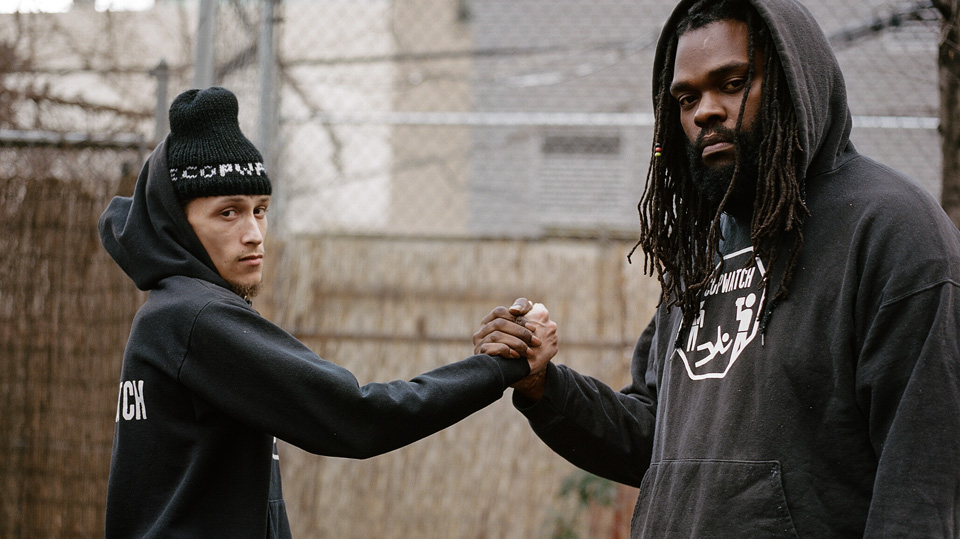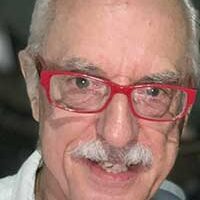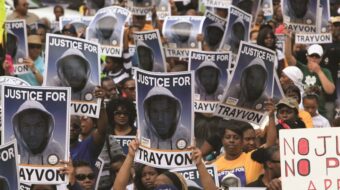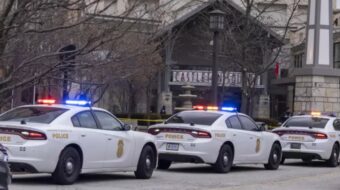
Most people agree police serve a vital function in society – preserving the peace and protecting people and communities from dangerous criminals. But then there are those few who join the police force as a cover to carry out sadistic and racist acts.
Police violence, certainly not endemic to America alone, and its documentation, is addressed in Copwatch by British filmmaker, Camilla Hall. Rather than focus on the figures in front of the camera who have gained international recognition (Eric Garner, Freddie Gray, Michael Brown), the lens is aimed at the filmmakers themselves who captured the violent acts, and the sense of brotherhood that developed through the shared trauma of standing up to police brutality, and shows how their determination to film has impacted their own personal lives.
Director Camilla Hall was born in London, spent 7 years as a print journalist based in the Middle East and New York, and is now working as a film producer and director based in LA. While researching for her first film, she came across one of the many groups interested in combatting police brutality, WeCopwatch. While looking for new and interesting stories that needed to be told, she heard of the stories of Ramsey Orta and Kevin Moore who were arrested right after they filmed scenes of police violence.
Moore filmed Freddie Gray’s treatment at the hands of Baltimore police before Gray was placed in a police van where he sustained the neck injury that ended his life days later. Orta filmed Eric Garner’s final words “I Can’t Breathe” as a police officer choked him to death in Staten Island. Orta, who knew about WeCopwatch before he started filming, is now in jail, but not for filming. Hall had a conversation with an ex-cop who revealed that “it was standard practice that if someone bothers us filming we would go off and check their records, property taxes and anything else to harass and retaliate for videos shot.”
I was able to talk to Hall, who is in the throes of releasing her first two films – simultaneously. She explains that “WeCopwatch is just one group in the US whose mission is to film police activity, as a non-violent form of protest and deterrent to police brutality. Copwatching is more a consciousness, a loose affiliation, an idea. Different communities start up with their own groups. it’s not an established organization, but rather a a process and an international phenomenon.”
The act of being present to film a critical scene of violence is often spontaneous, but with the growing proliferation of cameras and equipment, just about anyone can unexpectedly aid in helping to bring justice to victims of police brutality. At the film’s Q&A, WeCopwatch co-founder Jacob Crawford, who has spent the last 15 years with a camera in his hand documenting police activity, pointed out that he feels the public outcry for body cams is misdirected. “The videos are not transparent but difficult to access. Footage is often blocked during filming and few videos have ever been made available from FOIAs. The most effective method for capturing vital footage is from public cameras.”
Hall originally planned to focus only on this one group. She wished there was a prior film explaining the entire movement so this film could become just an example. She said of one award-winning Chicago documentary about anti-violence community activists: “Interrupters was a major inspiration for me.” She has not become an active group member of WeCopwatch, but a strong supporter of the movement. There was no script for the film but rather it unrolled as events took place. As they heard someone was arrested they traveled fast with the cameras. It was organically built on critical moments and the task of putting those pieces together.
“As much as the film is about police brutality, it’s about brotherhood and the love these men gained for each other as they took on this battle against the cops. It’s about their personal relationships and struggle.” Hall adds that “the point is that the struggle is unforgiving, a long term fight that doesn’t offer instant gratification. It is a frustrating movement and you have to be prepared for that going in.” But what impressed her most was how they stayed resolute in the face of so many disappointments. Orta was arrested before filming, and his early battles were filmed by Peter Eliscu, who was there from Day One. “He took the video, now we took the video,” was the mantra as cameras filmed cameras. Orta’s full story is highly complex, and Hall said they are trying to find out who ordered these undercover operations against Orta and if they are commensurate to the crimes he committed prior—or whether they should be investigated further.
Hall’s other film, in which she served as producer, Freedom for the Wolf, is being released almost simultaneously. It is also a challenging social study, this time about the rise of ‘illiberal democracy’ and “the erosion of freedoms around the world.” Filmed in Hong Kong, Tunisia, Japan, India, US, it’s a more academic sociological and challenging film looking at the global trend of freedoms that are being taken away. The director focuses on a new way to study the growing trend of democracy combined with dictatorship. “A democracy doesn’t have to be liberal, it can be pushed to the limit by populist power. Strongmen leaders use the idea they were ‘democratically elected’ to impose harsh leadership, while they are in essence against democratic ideals.”
The director might be thinking of Trump, but then, considering centuries of slavery, Native American genocide and the class struggle, have we ever had true democracy in America? Hall says, “we look at the idea of freedom and where this concept came from.” One scholar in the film posits that “freedom was born out of slavery,” implying it didn’t exist until the negative existed first – born out of captivity. This challenging film will premiere in the UK in the next month.












Comments